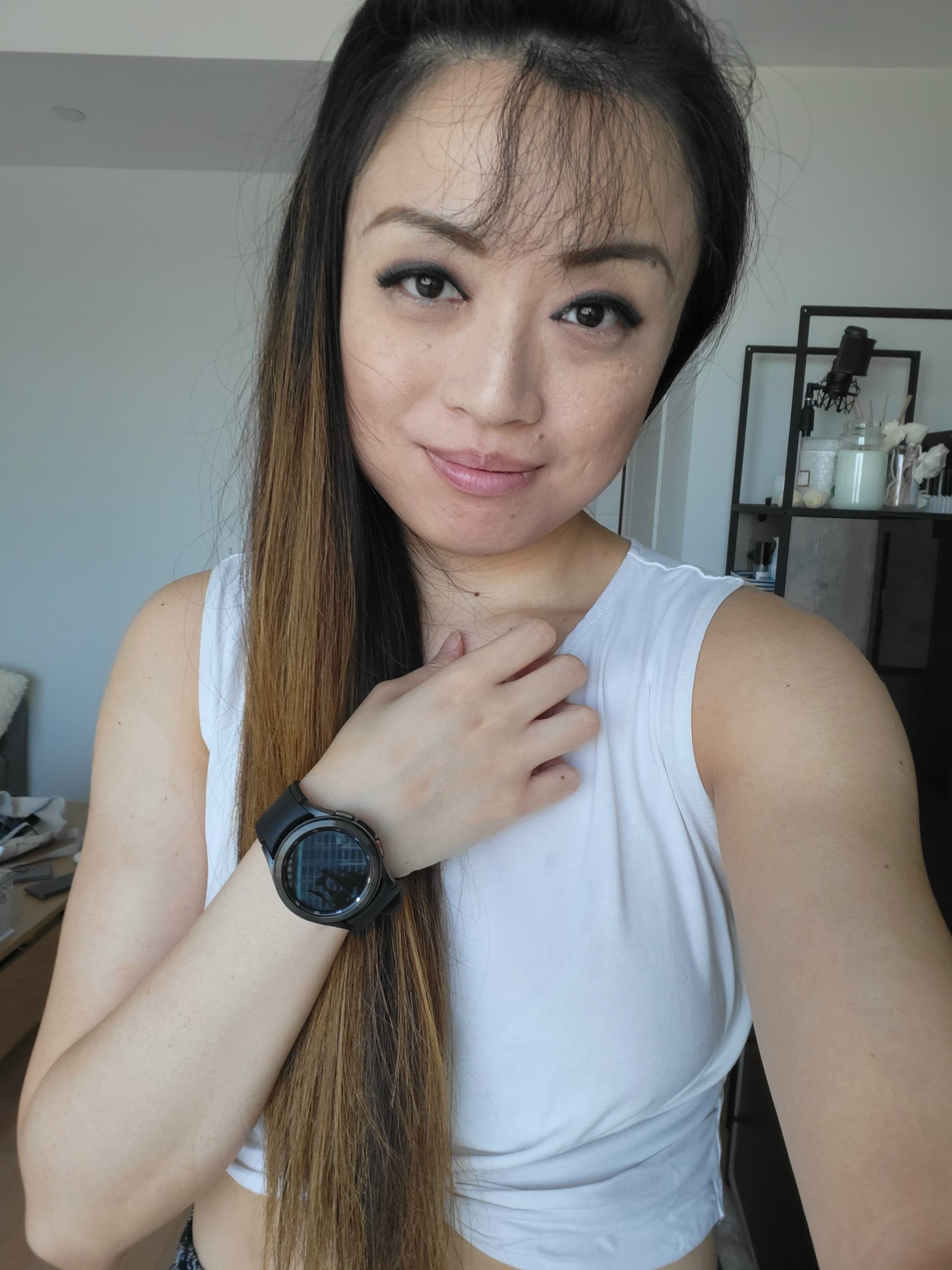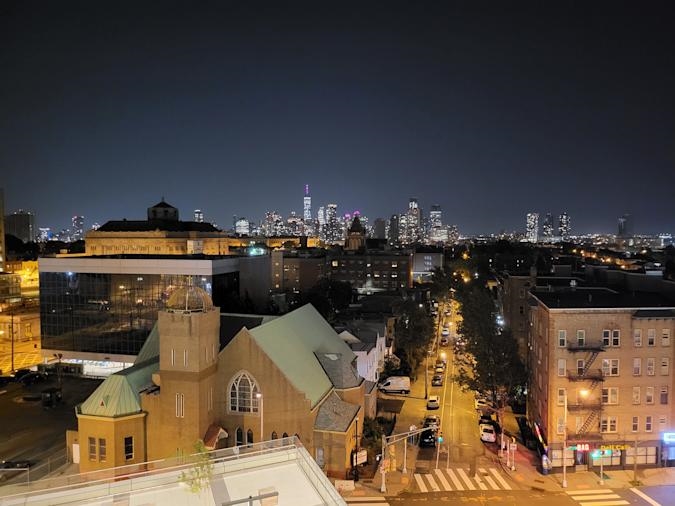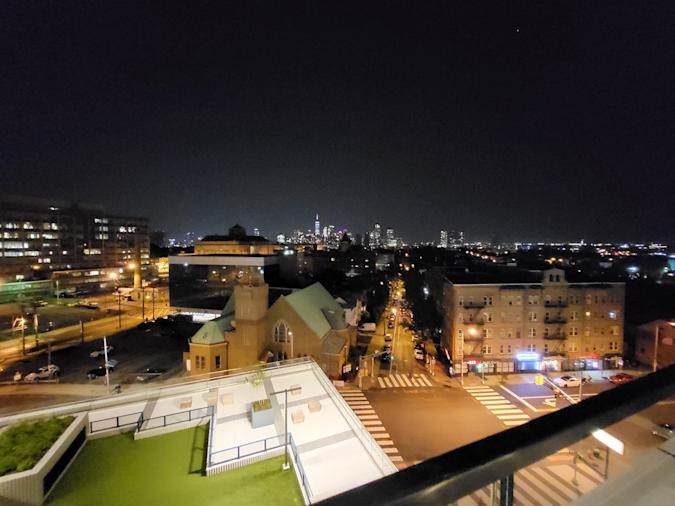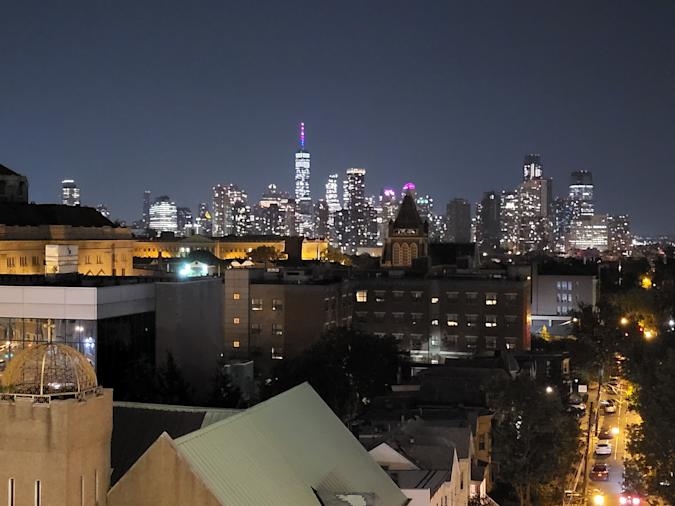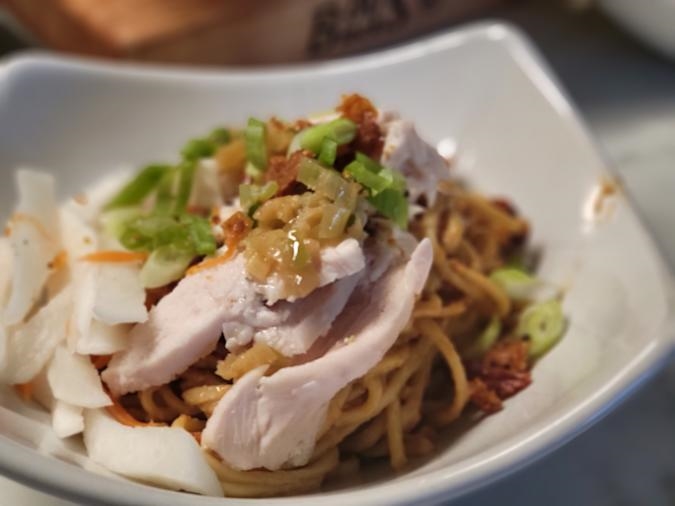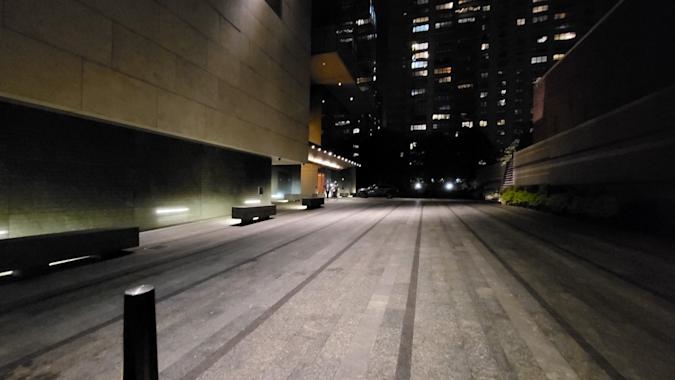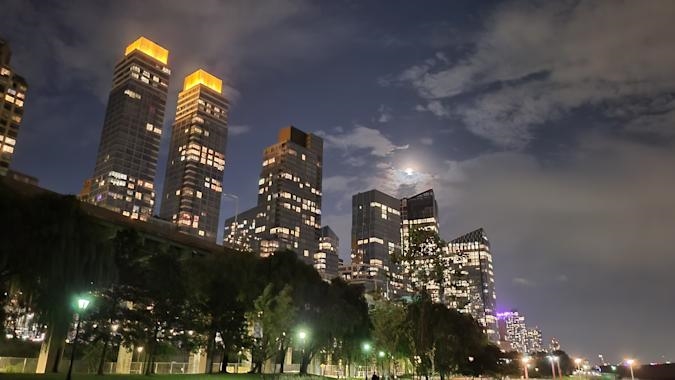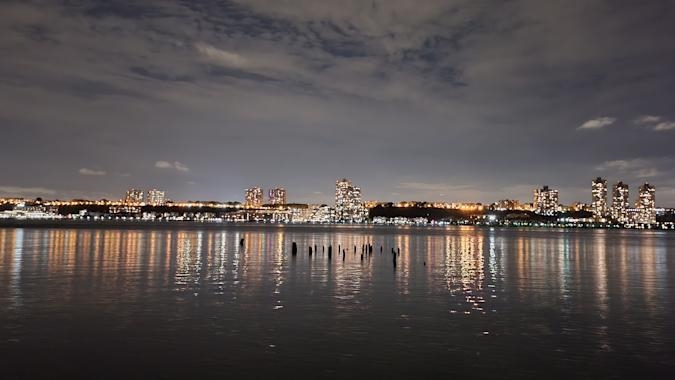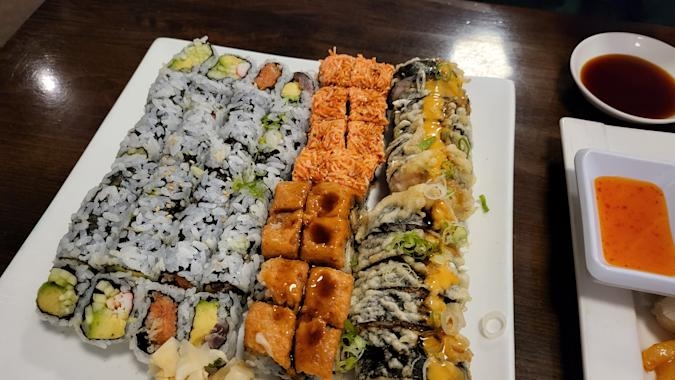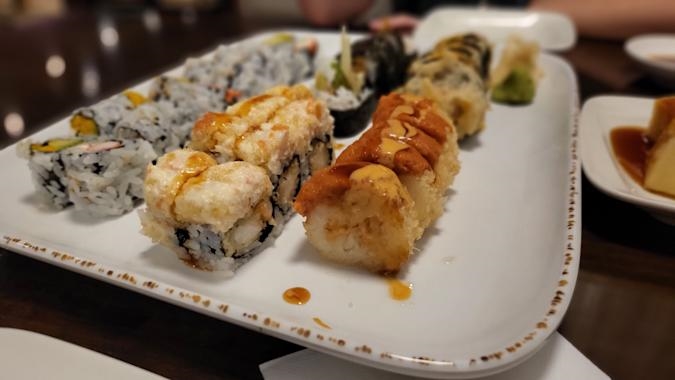ICYMI: We see how the Samsung Galaxy Z Fold 3 performs in the real world
Galaxy Z Fold 3 review: Doing the most and yet not enough
Samsung has done a lot to improve foldables but they still need work.

If you’ve been following the rise of foldable smartphones, the Galaxy Fold probably holds a special place in your heart. It was the first of its kind to make it to market, and despite a troubled debut and wobbly sophomore launch, the series is now on its third generation. The Galaxy Z Fold 3 is all grown up and stronger than ever. It’s had time to learn from the mistakes of its youth, and Samsung has devoted a ton of research into fortifying the foldable’s screen, hinge and overall build. This year, it’s added support for the S Pen, as well as water resistance and more optimized software. The phone is also $200 cheaper, now starting at $1,800. But despite all its growth, the Fold 3 is still undergoing an identity crisis.
Design
Just by looking at it, you wouldn’t be able to see a difference between the Fold 3 and its predecessor. The two have basically the same dimensions, with this year’s model coming in a little thicker. But despite gaining 0.4mm when unfolded, the Fold 3 is actually 0.8mm thinner than the Fold 2 when closed. It appears Samsung might have been able to reduce the gap between the two halves of the screen when it refined its hinge mechanism.
Galaxy Z Fold 3
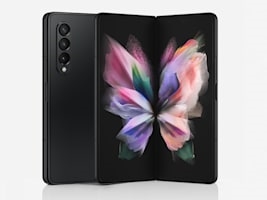
Pros
- Impressive flexible screen
- S Pen support
- Good cameras
Cons
- External display is narrow
- Heavy as a smartphone
That said, without a side-by-side comparison, you probably won’t notice this. You also might not realize that the Fold 3 is 10 grams (or 0.35 ounces) lighter than its older sibling, either. But it’s certainly heavier than most other smartphones. It’s about 45 grams (or 1.58 ounces) heavier than the iPhone 12 Pro Max and the S21 Ultra, and after prolonged use my arm started to feel the strain. Still, it’s basically two phones in one, which means the only device that might be fair to compare it to is the Surface Duo. Microsoft’s dual-screen phone is noticeably thinner and lighter than the Fold 3.
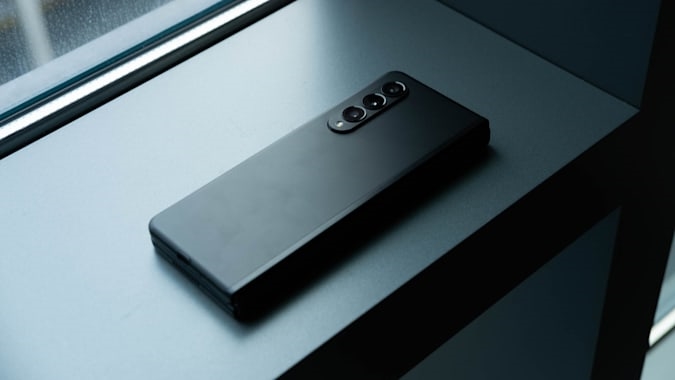
Because it didn’t have a flexible display, though, the Surface Duo presented less of an engineering challenge. Durability is a greater concern with foldables like the Fold and Flip 3. Samsung said it used stronger aluminum in the Fold’s frame, streamlined its hinge and redesigned the screen’s layers to make the device sturdier. It also applied a new stretchable PET protector on the panel. Altogether the company said the Fold 3’s screen is 80 percent more durable than its predecessor.
That’s not something I can gauge without intentionally trying to damage the Fold 3. But its screen does feel more glass-like than the original, and the protector completely covers the display so you won’t see its edges that tempt you to peel it off. Some reviewers noted bubbles appearing on their Fold 2 after a few months, and since it hasn’t been that long, I can’t say for sure if the new model will do the same.
For now, though, the Fold 3 has withstood being tossed around in a purse full of sharp and heavy objects and still looks pristine. It also survived some droplets of water after I set it down near the sink when I was washing my hands, thanks to its new IPX8 water-resistance.
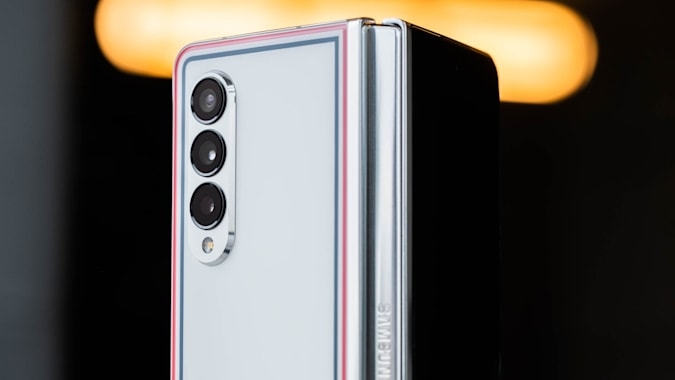
When open, the Fold 3 is easy enough to hold with one hand, though I generally held it with both for easier typing. While I appreciate that the hinge is sturdy enough that you can leave the phone open at any angle, it makes unfolding the device kind of hard. The magnets that keep the device shut are very strong, so you’ll have to first pry them apart and then push deliberately to extend it all the way. In fact, I had a few close calls where I almost dropped the Fold 3 when struggling to open it.
Thankfully, I didn’t, because any scratches would be quite obvious on my all-black review unit. The Fold 3 also comes in silver, green and a Thom Browne version with red, white and blue stripes. You’ll have to spend $3,450 to get the latter in a limited-edition bundle, though.
A tale of two displays
Outside, the Fold 3 has a 6.2-inch 2,268 x 832 display, which now refreshes at 120Hz. It also uses a Dynamic AMOLED panel, which supports HDR10+ as opposed to last generation’s Super AMOLED. The faster screen makes scrolling my neverending inbox super smooth, and pictures on my Instagram feed look vibrant. Aside from these upgrades, the Fold 3’s external display is basically the same as its predecessor’s, which means it has a similarly narrow aspect ratio.
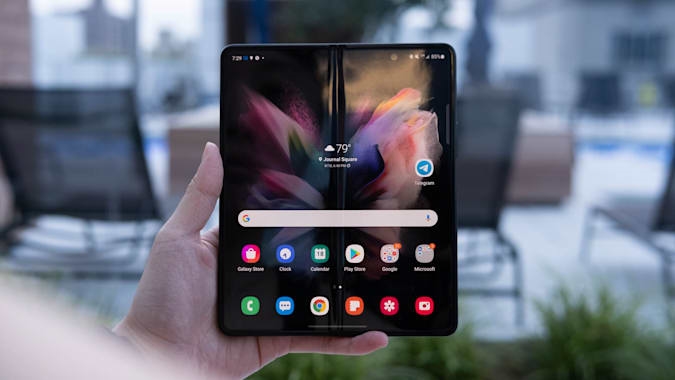
While that makes the closed device easier to navigate with one hand, it also means most content feels cramped. Buttons on the keyboard, for example, are smaller and harder to aim for, while lengthy messages and tweets take up more lines so you’ll see fewer on the page at once.
Thankfully, when you need more room, you can open up the Fold to use the 7.6-inch Dynamic AMOLED panel inside. Like the outside display, this has a 120Hz refresh rate, and it runs at 2,208 x 1,768. To give you a more immersive full-screen experience, Samsung used an under-display camera (UDC) here that can camouflage beneath pixels so you won’t have to see the little hole that most modern phones have for their selfie sensors.
I don’t know about you, but I never found those tiny circles to be very obstructive or much of an eyesore. Still, if you really hate seeing it, the good news is the UDC does disappear into the screen with the right background or app. The bad news is that you’ll still see it on darker wallpapers, and even when the screen above the camera is displaying something, it creates a noticeable ring of pixelation.
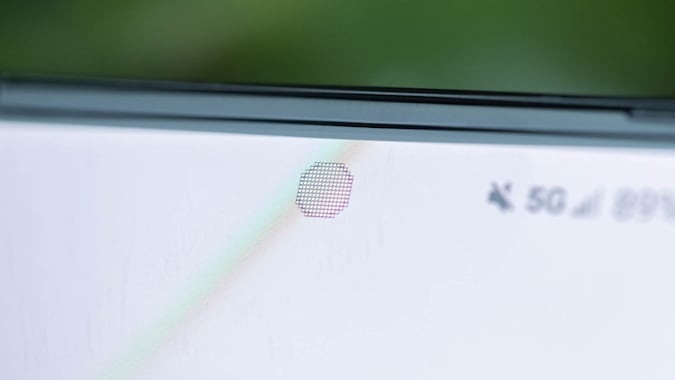
This didn’t bother me much, and after some time I even forgot the camera was there. Most people likely won’t mind the little distortion the UDC causes. Regardless, the rest of the screen is bright, colorful and crisp, making it a pleasant canvas for my videos and casual games.
S Pen and multitasking software
The Fold 3’s internal display isn’t just great for Netflixing. With S Pen support this year, the foldable screen is more useful for those who want to write notes or sketch diagrams on that expansive surface. You’ll have to pay an extra $50 for the S Pen Fold edition or $100 for the Pro model, which comes with a case. The Fold version doesn’t require charging and is pretty basic, while the Pro needs power for features like switching between other Samsung phones and Bluetooth controls. Either way, there isn’t a slot on the phone for the stylus, so you’ll have to put up with carrying around a loose accessory.
If you’re willing to splurge, the S Pen is a generally helpful tool on the Fold 3. I mostly used it as a cursor to make navigating the larger screen easier, but it’s also fluid and responsive when doodling on Samsung Notes. The company also offers an “S Pen to text” setting that lets you more easily edit text by marking dittos, arrows or strokes directly on words. Drawing a line through letters, for example, will erase them.
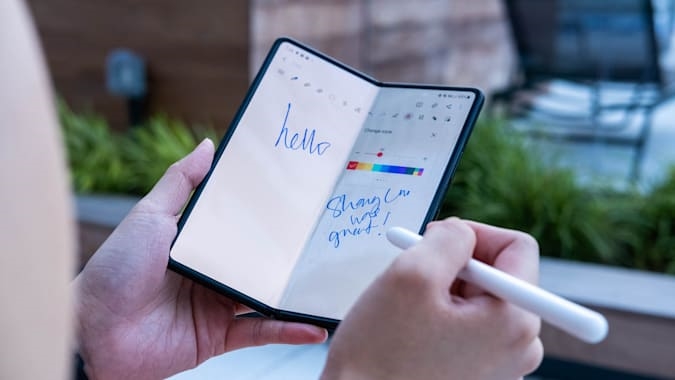
I’m not a fan of having to bring around any extra items to use a phone, but the S Pen did make it easier for me to write this review on the Fold 3 from the back of a cab. Trying to type on its larger screen with my fingers is a huge pain, and the stylus came in handy, making swipe typing more accurate. I also loved scribbling into search bars and messaging apps — Samsung’s system is surprisingly adept at recognizing my awful handwriting.
While I’m not sure it’s worth the extra $50, I can appreciate the work Samsung had to do to make S Pen support a reality. As I dragged the nib around the screen during a bumpy ride, I managed not to damage the flexible display with any accidental pokes and stabs.
Even without the S Pen, the larger internal panel still offers a variety of useful multitasking features. Like its predecessors, the Fold 3 lets you place two apps side by side so you can keep an eye on Slack while writing a review or monitor Twitter for PlayStation 5 release news as you read articles on Chrome.
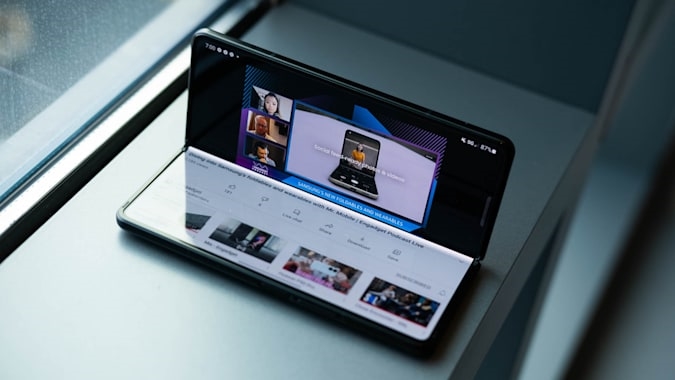
This year, Samsung made it so you can pin the Edge panel to the screen so it acts like a desktop-style taskbar for easy access to your open and favorite apps. It’s a simple but tremendously useful update. Now, instead of having to swipe in to pull up the Edge panel and then drag an app out to open it in split-screen, the icons are already there. It does take up a column of space, though, which makes running two apps at once feel cramped. Thankfully, it’s easy enough to hide with a tap.
It feels as if the floating panel has finally found its home on the Fold 3 since Samsung first launched it on the Galaxy Note Edge in 2014. What used to be a somewhat awkward, only slightly convenient feature is now an actually useful tool that makes the Fold 3 feel like a more capable multitasking device.
Another thing Samsung did to improve the Fold’s big-screen experience is add the option to make all apps expand to fullscreen. Through its experimental Labs settings, the company lets you choose whether individual apps launch in 16:9, 4:3 or fullscreen. In the past, for example, Instagram would refuse to expand completely, resulting in an unsightly setup with the phone-sized app in the middle and blank space on either side. Now, you get to decide how much of the display they should take up.
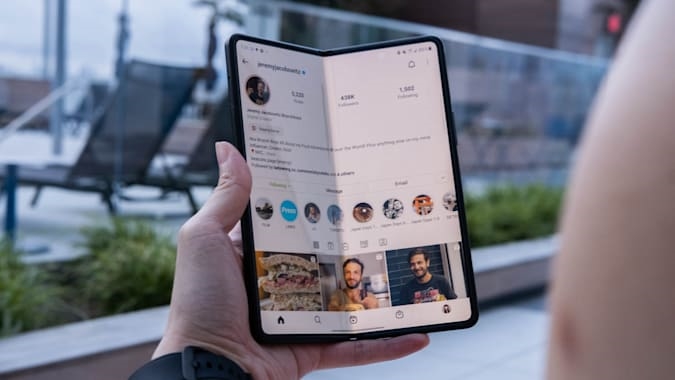
This only works partially, though. Yes, my feed does take up the whole screen, but watching and posting Stories still reverts to the phone-sized orientation. Also, a lot of pictures on Instagram look splotchy when the app is blown up. Samsung still has a ways to go, but I applaud the effort.
The company offers more features in Labs to improve the full-screen experience, including enabling Multi Window and Flex Mode panels for all apps. Like the aspect ratio tweak, these can be hit or miss. Flex Mode panel adds a mini dashboard to the bottom part of the screen when you half-open and set the Fold 3 up like a laptop. Some apps are optimized for this to offer useful, well-spaced controls in this space. But for the ones that aren’t, like Chrome, Samsung’s software slaps a tiny, inch-tall row of four buttons at the bottom for keyboard, screenshot, brightness and volume.
I could go on about the rest of Samsung’s software, like how the App Continuity feature doesn’t always keep content in the same place when you open the Fold up to see something on the bigger screen. But that would take forever. In general, it feels like Samsung is putting more and more effort into band-aid solutions when Google should really be working on optimizing Android for tablets.
A plethora of cameras (including one under a display)
Like a person trying to be too many things, the Fold 3 is an overachiever. And the fact that it has five cameras onboard almost feels excessive. There’s a 10-megapixel selfie camera, the UDC, which is just 4-megapixels sharp and a trio of 12-megapixel sensors on the rear, including regular, ultra wide and telephoto lenses.
Most of these cameras perform just as well as iPhone and Pixel flagships, delivering bright, colorful pictures in most situations. It did justice to rows of mouthwatering sushi, clearly rendering scallions and individual grains of rice.
My nighttime shots of the USS Intrepid on the Hudson River also came out sharp and bright, though Google still has the edge in low light. Pictures of trees and buildings taken with the Pixel 5’s Night Sight mode were clear enough that leaves were distinct, while the Fold 3’s photo of the same was muddy.
Gallery: Samsung Galaxy Z Fold 3 camera samples | 15 Photos
That’s a small gripe, though. The Fold 3’s rear cameras are otherwise comparable to their conventionally shaped counterparts. The selfie sensor also delivered pleasantly crisp, vibrant photos.
My main complaint about photo or video quality would be with the UDC — and it’s a small one. You can clearly tell when using this to take selfies or chat with friends that it’s a lower-quality option. Details are less sharp and colors aren’t as saturated. Still, I don’t expect much from a 4-megapixel camera, especially not one that’s under a screen. This feels more like a last resort if you really must take a call with the Fold open and is just serviceable.
Performance and battery life
Whether I was using the outside screen or the internal panel, the Fold 3 was mostly snappy. Its Snapdragon 888 processor with 12GB of RAM delivered smooth performance as I marked dozens of emails as read, wrote a review while watching a video and Slacking my colleagues. I occasionally had to wait for an app to re-open when I switched between the two displays, but for the most part everything flew.
I also never found myself worrying about the Fold 3 running out of juice. It generally stuck around for at least a day and a half, sometimes only conking out after two days. I ran our video rundown test on the Fold 3’s larger screen and it clocked 14 hours and 3 minutes. The Surface Duo only lasted 10 hours and 32 minutes in a similar setup.
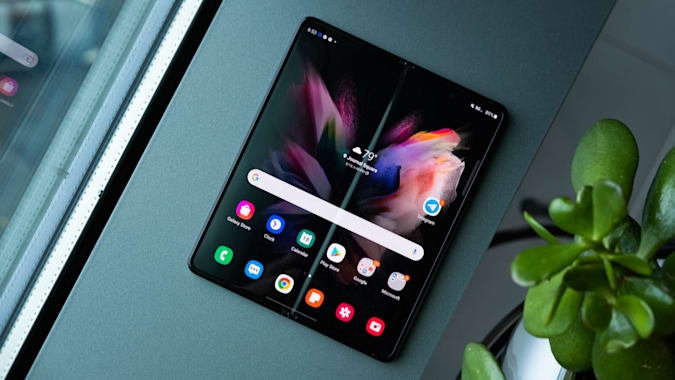
Wrap-up
With the Fold 3, it feels like Samsung has tried extremely hard to make a foldable smartphone-tablet hybrid work. But while I found myself eagerly reaching for the Flip 3 when I was reviewing it, I struggled to find reasons to use the Fold 3. When it’s closed, it’s heavier and narrower than a regular phone. I only want to open it up for gaming and getting work done on my commute. For the times when I’m leaning back on my couch and want to idle away on Reddit or Twitter, the Fold 3 doesn’t satisfy. Maybe that’s a good thing, but I’m not here to debate the philosophical benefits of foldables.
I had a similar issue with the Surface Duo, which tried to be a tablet and a phone and failed at both. Though the Fold 3 is in most ways superior, it still won’t replace a regular smartphone. It’s a well-made, impressive piece of tech that has benefited from years of R&D, but it suffers from an identity crisis by attempting to be two things at once. Does that mean the world should give up on foldable phones altogether? Absolutely not. As components get smaller, the Fold could one day be thin and light enough with much improved software that might make it useful in all its modes. But for now, despite all the progress Samsung has made, the Fold 3 is still not ready for the mainstream.
Key specs
Processor: Snapdragon 888 or 5nm 64-bit octa-core processor (2.84Ghz + 2.4GHz + 1.8GHz)
RAM / Storage: 12GB with 256/512GB storage
MicroSD card support: None
Main display: 7.6-inch 120Hz Dynamic AMOLED Infinity Flex Display
Main display resolution: 2,208 x 1,768 (22.5:18)
External display: 6.2-inch 120Hz Dynamic AMOLED
External display resolution: 2,268 x 832 (24.5:9)
Rear triple cameras: 12MP f/1.8 wide-angle camera with OIS and 83-degree FOV, 12MP f/2.2 ultra-wide camera (123-degree FOV), 12MP f/2.4 telephoto camera with OIS and 45-degree FOV
Front camera: 10MP f/2.2 camera (80-degree FOV)
Inside (under-display) camera: 4MP f/1.8 camera (80-degree FOV)
Operating system: Android 11 with One UI
Battery: 4,400mAh
Charging: USB-C with fast wired charging at 25W (QC2.0 and AFC) and fast wireless charging at 10W (WPC and PMA). Reverse wireless charging at 4.5W (WPC Qi).
Dimensions: 128.1 x 158.2 x 6.4mm (unfolded); 67.1 x 158.2 x 16.0mm (Hinge) – 14.4mm (Sagging) (folded)
Weight: 271 grams
Fingerprint sensor: Yes, on power button.
Waterproofing: IPX8
NFC: Yes
Headphone jack: No
Photos by David Imel (@DurvidImel)
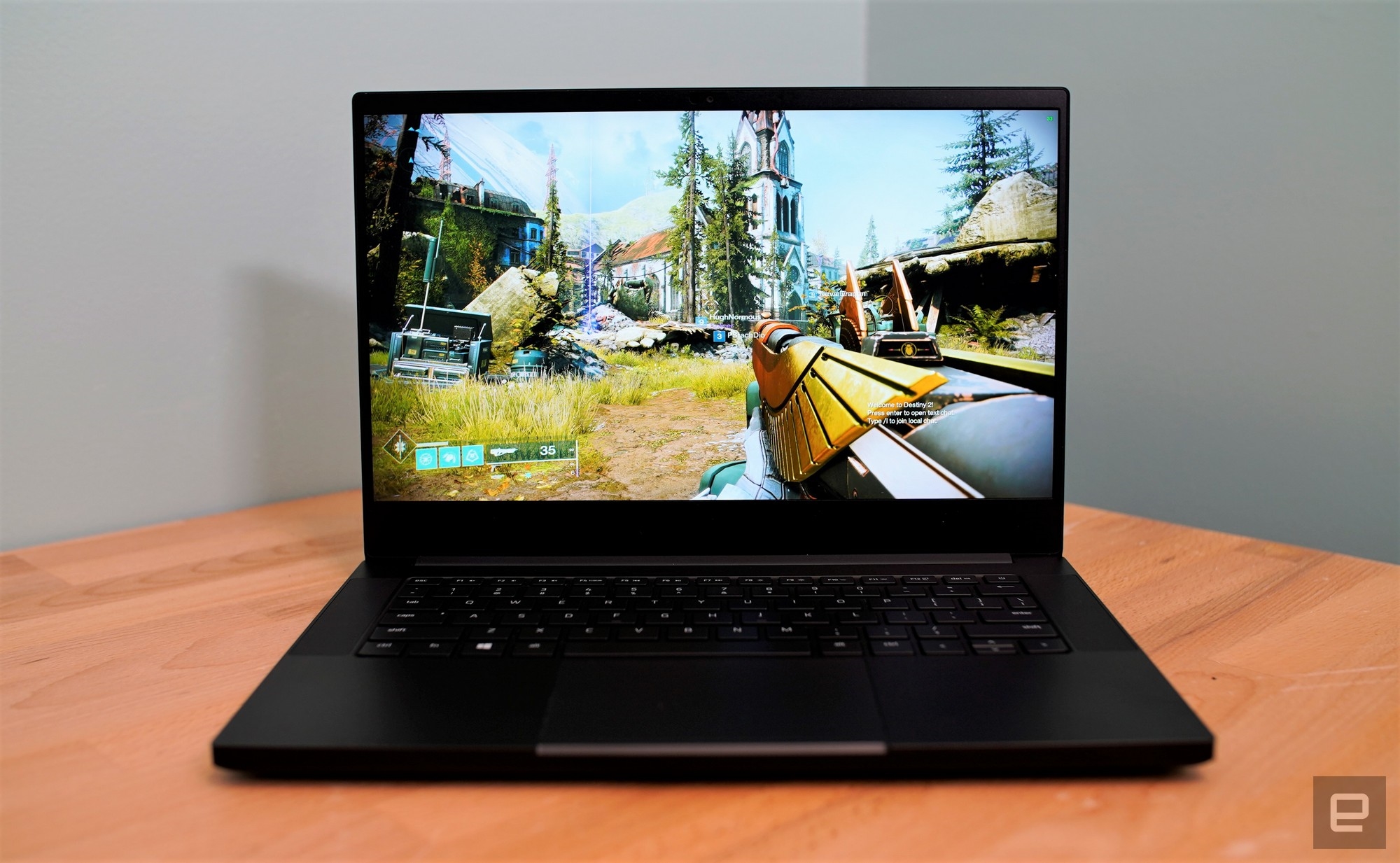
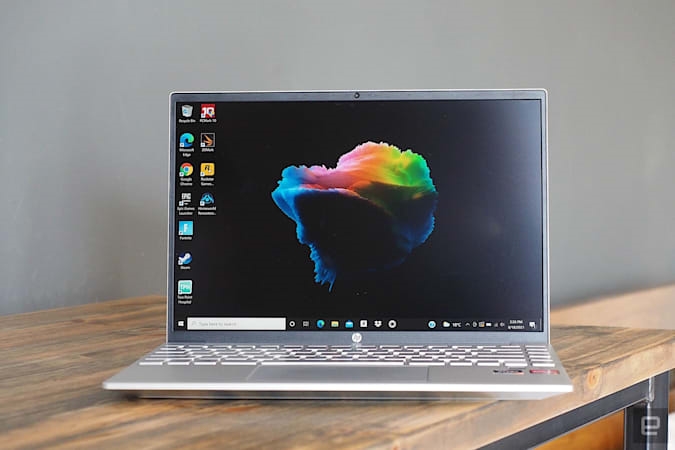
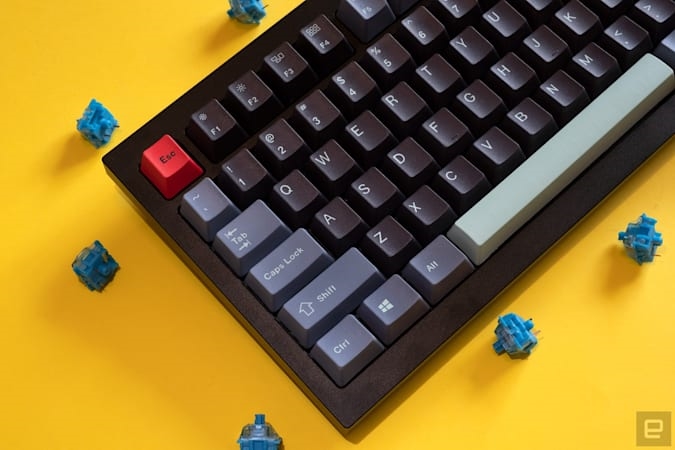
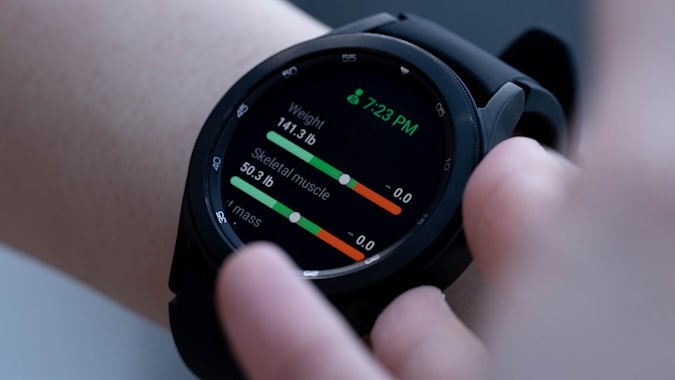
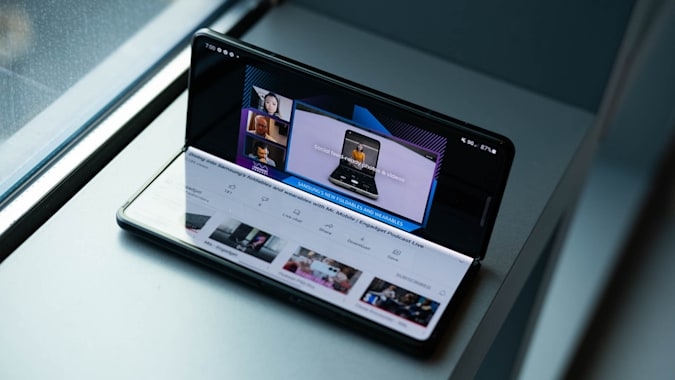
(57)


